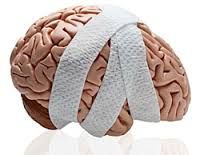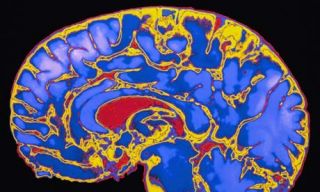Traumatic Brain Injury
Physical Activity May Be the Best Medicine for Concussion
Moderate exercise and cognitive rest may be best combo for treating a concussion
Posted January 29, 2014

The traditional recommendation for patients who suffer sport-related concussions is a combination of both physical and cognitive rest. Although cognitive rest continues to be linked to speedier recovery from a concussion, a new study is questioning whether physical rest might actually delay recovery from post-concussion syndrome.
A new approach for treating post-concussion syndrome (PCS) is being pioneered based on a prescriptive that includes gradual exercise—not complete physical rest. Researchers have found that moderate physical activity helped athletes get back in the game more quickly. The new study titled, "Exercise May Be Best Medicine to Treat Post-Concussion Syndrome" was released from Canisius College on January 27, 2014.
Moderate Exercise and Cognitive Rest May be the Best Combo for Treating a Concussion
Moderate exercise may help to restore the balance of the brain’s auto-regulation mechanism, which controls the blood pressure and supply to the brain according to Karl Kozlowski, Ph.D., assistant professor of kinesiology at Canisius College, and lead author of the study.
Kozlowski is developing a treatment program for patients who suffer from post-concussion syndrome. PCS is defined as three or more concussion symptoms that persist at least three weeks after the injury. According to the researchers, past treatments for the condition have failed to be successful. Kozlowski's treatment, which prescribes a regulated exercise routine, could be one of the first to offer real hope to those who suffer from PCS.
"We started out wanting to determine if athletes who suffer from post-concussion syndrome could exercise at a level that wouldn't bring out symptoms but would allow them to stay conditioned while recuperating," says Kozlowski.

Kozlowski and his co-researchers tested patients' threshold for exercise. From that, they developed a specialized low-level workout program (around 10 or 15 minutes) for each individual. Patients were asked to keep track of their symptoms and within three weeks, they reported feeling better. New regimens were fine-tuned and tailored for participants. After several months of this routine, the researchers found that concussion symptoms were significantly reduced or went away entirely for the patients.
"We found that gradual exercise, rather than rest alone, actually helps to restore the balance of the brain's auto-regulation mechanism, which controls the blood pressure and supply to the brain," says Kozlowski.
Earlier this month I wrote a Psychology Today blog post titled “Cognitive Rest After Concussion Speeds Recovery” based on a study titled, “Effect of Cognitive Activity Level on Duration of Post-Concussion Symptoms.” The study recommended that after a concussion, student athletes should reduce mental activities—such as reading, texting, doing homework, and playing video games.
The researchers at Children’s Hospital in Boston concluded that limiting cognitive strain after a concussion increases the speed of recovery by up to five hundred percent. The findings were published on January 7, 2014 in the journal American Academy of Pediatrics.
Conclusion: Exercise Stimulates Neurogenesis
In addition to the benefits of physical activity restoring the brain’s auto-regulation mechanism, there is also the possibility that moderate physical activity could improve PCS by stimulating neurogenesis, which is the growth of new neurons.
Although, the researchers of this current study don’t specifically mention neurogenesis, many other studies have found a direct link between physical activity and improved cognitive function. If you’d like to learn more about this, I explore the neurobiology behind how exercise improves brain function in my Psychology Today blog post “Scientists Discover Why Exercise Makes You Smarter.”
For more on this topic check out my Psychology Today blog posts:
- “Cognitive Rest After a Concussion Speeds Recovery”
- "High School Athletics Improves Well-Being for a Lifespan"
- “Can Physical Activities Improve Fluid Intelligence”
- “Too Much Crystallized Thinking Lowers Fluid Intelligence”
- “Scientists Discover Why Exercise Makes You Smarter”
- “The Brain Drain of Inactivity”
Follow me on Twitter @ckbergland for updates on The Athlete’s Way blog posts.




